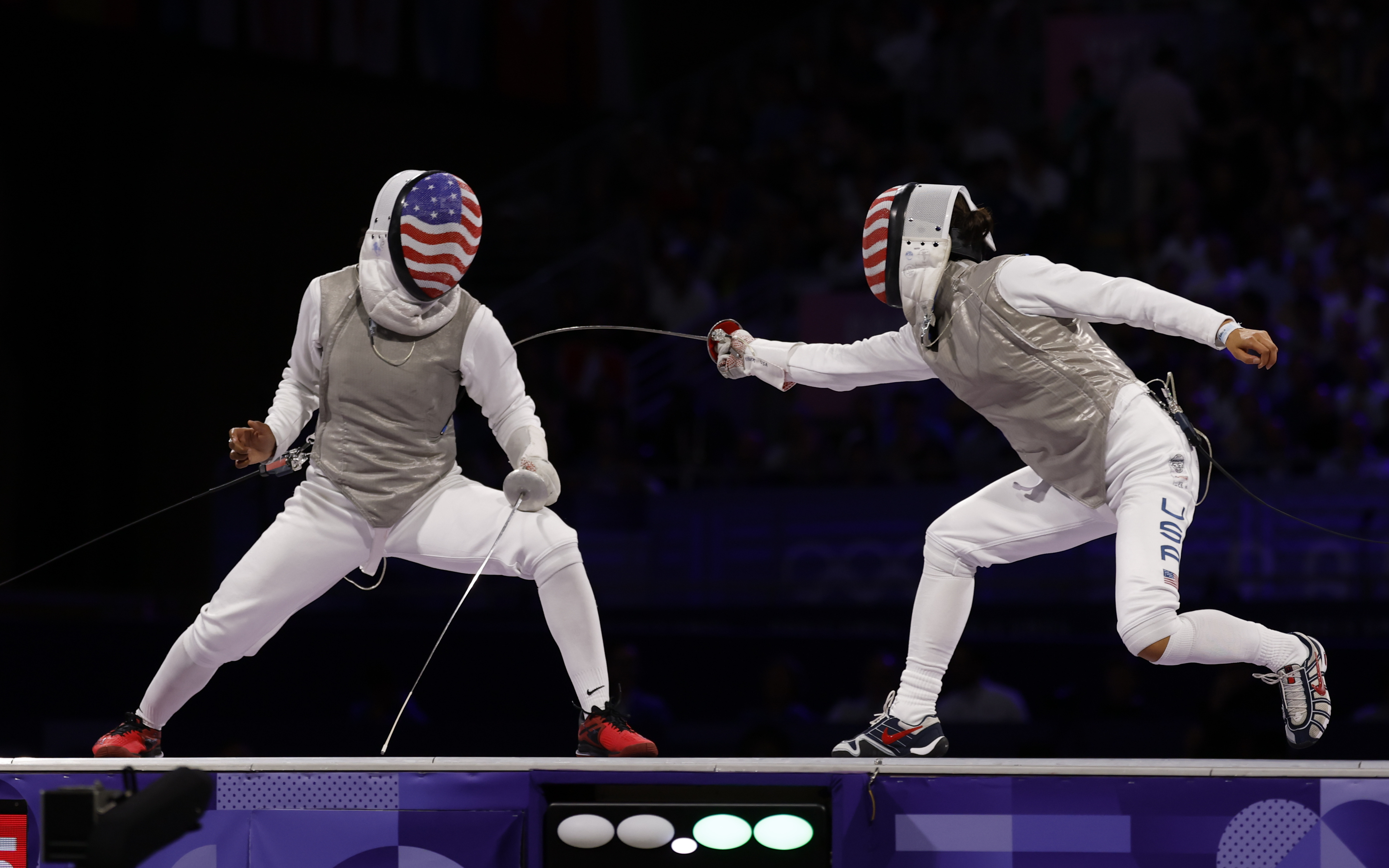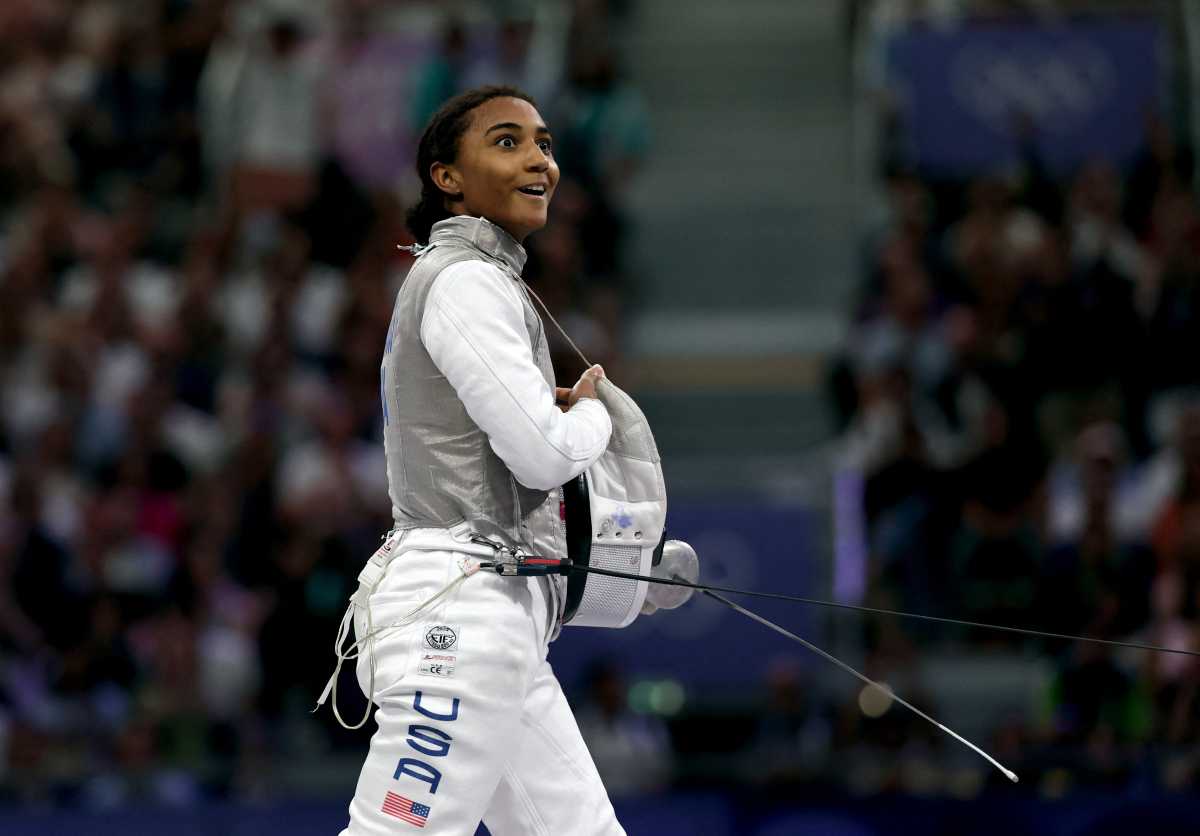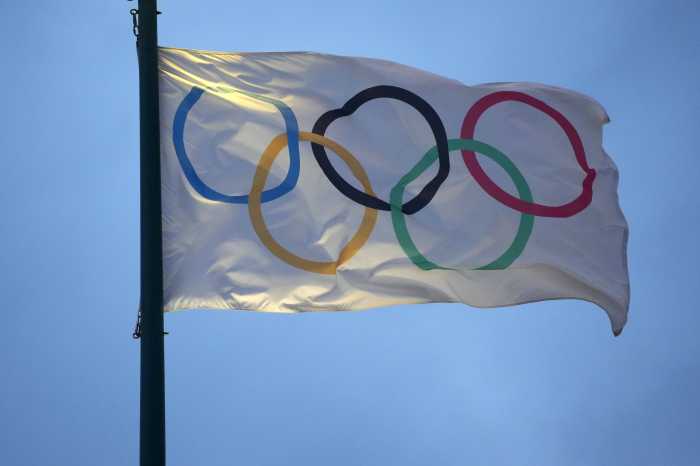Growing up in cutthroat New York gave Lauren Scruggs the competitive mindset needed to claim an unexpected fencing silver medal on her Olympic debut in Paris.
The 21-year-old Queens native shared the podium with fellow American Lee Kiefer, who retained her Olympic title in the women’s individual foil event gold medal bout on Sunday.
“I’ve grown up in New York my whole life. It can be kind of rough sometimes,” Scruggs, the first Black American fencer to win an Olympic medal in a women’s individual event, told Reuters.
“You develop a hard shell, and in terms of how that translates to my fencing, I think it came out, that energy and that toughness.”
When Scruggs found herself neck-and-neck with then world number two Arriana Errigo in the quarter-finals, she managed to score the last touch, knocking out the Italian 15-14.
“I think that was my toughest bout of the day in terms of energy, and going past my limits, and I have definitely New York to thank for that,” said Scruggs, one of the rare Black fencers at the highest level.
“Fencing is predominantly white, I think for a multitude of reasons, it’s just the history of the sport, and the lack of representation and encouragement,” she explained.
“To have this accomplishment is a big deal for me because when I was younger I only had a few people to look up to in the sport, so to be someone that little kids now can look up to is very special to me.”
They can draw inspiration from her impressive grit, which coach Sean McClain described in the U.S. training venue in Eaubonne, on the outskirts of Paris, saying that since she was eight, Scruggs only cared about winning medals.
“And she’s maintained that distaste for losing her entire career,” he said. “I really think in an event like the Olympics, it’s more about how you compete.”

EXPENSIVE SPORT
Born in the U.S. to Jamaican immigrants, Scruggs grew up in Queens with her mother and grandmother.
“I was in a single-parent household early on, so my family had to basically cut some corners around here and there to support us,” said Scruggs, whose brother was the first to get into fencing and inspired her to take up the sport.
Now a college student at Harvard where she trains every day, Scruggs had to fight to make it into a “pretty expensive” sport.
“It was not easy growing up, trying to fence while being from where I’m from, just income-wise,” she said.
“If you have the funds it makes it a lot easier to pursue the sport, and feel comfortable asking that from your family.
“But if you’re coming from a lower income background, it might push you harder. And I think it’s what happened with me. I just wanted it more than my peers.”
On paper, Scruggs did not have a big medal chance, but she showed her mettle at the Grand Palais arena.
“Fencing skill-wise, Lauren is on par with the better fencers in the world, but she’s not better than them. What made the difference was that competitiveness,” said McClain, who has also become Scruggs’ stepfather.
“That comes from my wife,” he added. “I knew it was possible, but I didn’t really think Lauren was going to win a medal in her first Olympics. But my wife did. She was like, she’d better win a medal. So that’s where it comes from – that’s the fiery spirit!”
With Kiefer and alongside teammates Jackie Dubrovich and Maia Weintraub, Scruggs will represent the U.S. against China on Thursday in the quarter-finals of the women’s foil team event.
Scruggs is aiming for gold this time and is dreaming already of qualifying for the next Games, which will take place in Los Angeles in four years’ time.
“I can’t imagine myself not fencing,” she said. “It’s not even love, it’s just a part of me. It’s connected to who I am,” she said.




































